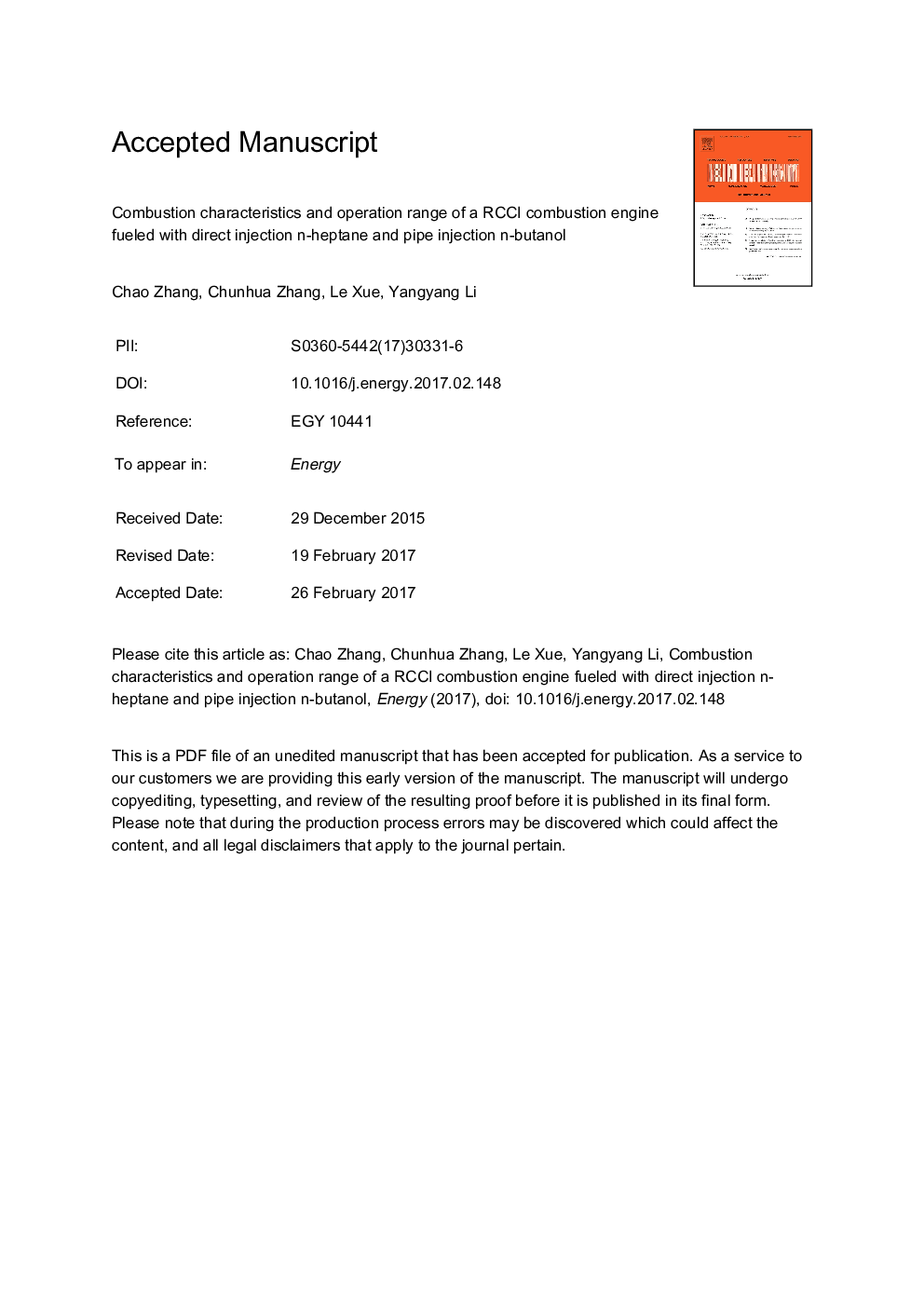| Article ID | Journal | Published Year | Pages | File Type |
|---|---|---|---|---|
| 5476494 | Energy | 2017 | 35 Pages |
Abstract
An experimental study of n-butanol pipe injection homogeneous charge compression ignition (HCCI) in combination with n-heptane in-cylinder direct injection (DI) is conducted on a modified engine. Since n-butanol does not have a good ignition property, it is preferable to utilize a better ignition fuel (n-heptane) to avoid HCCI combustion only controlled by chemical kinetics and to improve the ignition stability and combustion process. The effects of DI pressure, quantity, timing and intake temperature on RCCI combustion characteristics, thermal efficiency and emissions are studied. The results show that, the optimum DI pressure is 6Â MPa. With the increase of DI quantity, peak in-cylinder pressure, peak pressure rise rate and peak heat release rate all increase and occur in advance, CA10 and CA50 occur earlier and combustion duration is shortened. DI timing has an obvious influence on combustion phase. It is concluded that, by adding n-heptane DI, HCCI combustion of n-butanol is improved, HC and CO emissions are reduced, and NOx emission is kept at a very-low level. A smaller cyclic variation is detected and more stable operation is achieved. To some extent, the combustion phase may be controlled, the indicated thermal efficiency is improved, and the operation range has been extended.
Related Topics
Physical Sciences and Engineering
Energy
Energy (General)
Authors
Chao Zhang, Chunhua Zhang, Le Xue, Yangyang Li,
